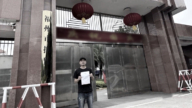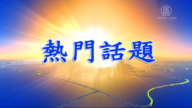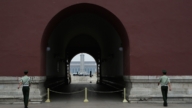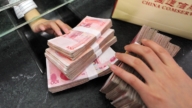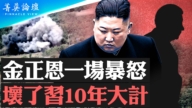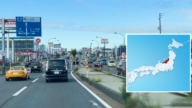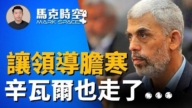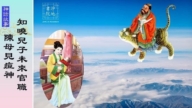【新唐人2012年1月11日讯】大陆国家行政学院教授、“中国行政体制改革研究会”副会长汪玉凯指出,大陆当下已经形成了“权贵”、“垄断”及“地产资源”三大利益集团,要改革,就必须还给老百姓选择领导人的权力。
汪玉凯1月8号在北京举办的“中国改革(2011)年会”上提出,中国当下已经形成了三大利益集团,第一是,以官员为代表的“权贵利益群体”;第二是,以官员垄断企业为代表的“垄断利益群体”;第三是以房地产和资源行业为代表的“地产资源利益群体”。
汪玉凯认为,中国快速出现这样规模的利益集团,主要是因为中共当局缺乏公平公正、部门利益泛滥,以及大量国有资产在改制中流失。
汪玉凯建议,从制度上打破不合理的利益链条,实行严格的官员财产申报制度和广泛的选举制度,还给老百姓选择领导人的权力。
山东大学退休教授孙文广:“从世界各国来看,民间来直接选举官员,这是一种大势所趋,不会因为少数人的反对,它就完全停滞下来,但是,这三大利益集团肯定是对这个选举持抵制的态度,因为这个损害他们的既得利益,这些利益集团就希望由上级来认领官员,甚至包括领导代表,他们来任命。”
“深圳当代社会观察研究所”所长刘开明也表示,选举权只是终止政治权力的一部分,还必须有相应的公民政治权力,包括公民对领导人的评判,领导人公开个人财产,政府公开财政开支和财政预算,让公民有选择监督能力。
“深圳当代社会观察研究所”所长刘开明:“其中最重要的是公民的政治参与,政治参与是包括选举在内的一系列政治参与,没有这个自下而上的压力,我觉得是不可能突破这个利益集团的。”
刘开明表示,中国现在的选举制度有名无实,不是真正由民众决定,中国仍然是一个威权统治国家。
反观海峡对岸的台湾,从威权国家成功转型到民主国家,选举已经成为公民的义务。目前正值台湾总统大选前夕,大街小巷都可以看到候选人弯腰低头,向选民握手拜托要选票,而民众可以透过选举,选出心目中理想的政治人物。
“深圳当代社会观察研究所”刘开明:“实际上台湾已经是一个高度民主的地区,中国可以说还没有开始,在政治上,我们(中国)基本上还保留在斯大林前苏联这个党国一体的政治体制里面,这里面所有的决策,所有的政治参与,是由党来决定,而不是由民众来决定,所以这个问题没有改革的话,中国的民主政治是不可能开启。”
《世界人权公约》规定:“人民的意志是政府权力的基础﹔这一意志应以定期的和真正的选举予以表现,而选举应依据普遍和平等的投票权,并以不记名投票或相当的自由投票程序进行。”
山东大学退休教授孙文广:“60年来他们(中共)的官员一直是任命的,那么人民代表是一个摆设, 民众对官员的任免没有任何的发言权,没有任何表达的形式,那么官员必定是不受制约,不受制约的权力,就制造腐败。”
中国人权律师郭国汀给合法政权的标准是:主权在民。他认为,凡符合这个标准的政权就是合法的,反之,就不合法。
新唐人记者代静、黄容、王明宇采访报导。
****************
China’s Scholar Appeals For People’s Right To Vote
Wang Yukai, professor at National School of Administration
and China’ Administrative System Reform Association deputy,
said that China has formed three major interest groups,
of dignitaries, monopolists, and real estate & resources’ group.
Reform can be implemented only when the people
are given their right to free and fair elections.
At 2011 Annual Meeting on China’s Reform, held in Beijing
on January 8, Prof. Wang Yukai put forward his views.
Today’s China has three major interest groups, including
dignitaries, monopolists, and real estate & resources’ group.
The dignitaries’ interest groups are represented by officials
of the Chinese Communist Party (CCP) in the political arena.
The monopoly interest groups are represented
by officials, monopolizing the enterprises.
And the real estate & resource interest groups include
officials in the real estate sector and resources industry.
Prof. Wang reviewed the reason of the rapid emergence
of such large-scale interest groups in China.
It is due to CCP authorities’ lack of justice, departmental
interests’ abuse and extensive national property losses, incurred during state-owned enterprises restructuring.
Prof. Wang gave some suggestions, including breaking
the illegal interests’ chains in the institutional system;
caring out strict official property declaration system;
and introducing broad-based electoral system,
returning people the right to vote for their leaders.
Sun Wenguang (Retired professor, Shandong University):
“The direct election of officials is a world’s leading trend.
It won’t disappear just because of opposition parties’ minority.
The three interest groups certainly boycott the direct elections,
for it’ll harm their vested interests.
These groups wish that all the official nominations, including
leaders representatives, are decided by high-ranking officials."
Liu Kaiming, director of the Institute for Contemporary
Observation in Shenzhen, comments on the issue.
The right to vote can restrict the political power
only to a certain degree, thinks Liu Kaiming.
There must be corresponding civic political rights, like citizens’
supervision of elections and leaders’ work, transparency of public funds use, of leaders’ ownership, etc.
Liu Kaiming: “The most important factor is citizens’ right
to participate in politics.
The right, including elections,
covers a series of political participations.
If there is no such kind of bottom-up pressure,
I don’t think the interest groups’ barriers can be overcome."
Liu Kaiming said that the current electoral system in China
exist in name only, there is not true civic election system.
China is still a country under authoritarian regime.
In contrast, Taiwan has successfully transformed
from an authoritarian state into a democratic country.
Elections have become a civic duty there.
Now Taiwan is nearing presidential elections, and candidates
can be seen on the streets, trying to gain voters’ support.
By freely casting their votes, the Taiwan people can elect
the leader of their choice.
Liu Kaiming: “Taiwan is actually a highly democratic region,
China hasn’t begun that journey yet.
China is still an integral party-state political system,
the same as that of former Soviet Union.
All the decisions and the political participations
are determined by the CCP, instead of the people.
So if this issue is not addressed,
China won’t have democratic politics."
The Universal Declaration of Human Rights says: “The will
of the people shall be the basis of the authority of government;
this will shall be expressed in periodic and genuine elections
which shall be by universal and equal suffrage and
shall be held by secret vote or by
equivalent free voting procedures."
Prof. Sun: “Over the past 60 years, CCP’s regime appointed
all officials; people’s representatives are only a showcase.
The population do not have a say in the appointment or
removal of officials, nor do they have a form of expression.
The CCP officials surely possess unsupervised power,
that helps them breed corruption."
Guo Guoting, Chinese human rights lawyer, defines
a regime as legal if “sovereignty belongs to the people.”
Should a regime meet this criterion, it is deemed legitimate,
otherwise, it is illegal.
NTD reporters Dai Jing, Huang Rong and Wang Mingyu




